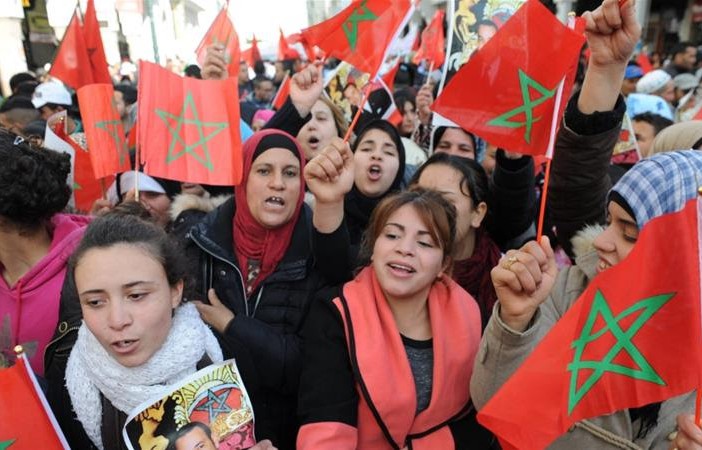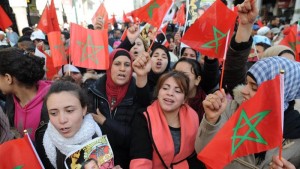Al Jazeera
NEWSMOROCCO
Nasser Bourita says Rabat will never change stance that Western Sahara is an integral part of its territory.
Last Monday, AU members at a summit in Ethiopia decided to allow Morocco back into the group [EPA].
Morocco will “never recognise” Western Sahara’s independence despite rejoining the African Union after a decades-long dispute over the territory, Deputy Foreign Minister Nasser Bourita said.
Last Monday, the AU approved Morocco’s re-entry into the bloc which it quit in 1984 in protest at the admission of the Sahrawi Arab Democratic Republic (SADR) declared by the Polisario Front at the height of a war for the territory.
“Not only does Morocco not recognise – and will never recognise – this so-called entity,” Bourita told website Le Desk in an interview on Sunday.
“It will (also) redouble its efforts so the small minority of countries, particularly African, which recognise it, change their positions.”
AU membership would not change Morocco’s stance that the Western Sahara is an integral part of its territory, he said.
READ MORE: Moroccans have lost trust in their politicians
Monday’s summit in Addis Ababa followed an intense diplomatic battle with the Polisario’s backers, led by Algeria and South Africa, which opposed Morocco rejoining the AU.
Meanwhile, the head of Western Sahara’s Polisario Front has said “all options are open” in its independence struggle from Morocco, but called for talks after the kingdom rejoined the African Union.
Polisario head and SADR president Brahim Ghali told AFP in an interview on Sunday that the move did not fundamentally change the situation.
“We always look for the peaceful way” to resolve the conflict, Ghali told AFP at a Sahrawi refugee camp in Tindouf, southwestern Algeria.
“But all options remain open,” he said, hinting that a return to armed struggle was possible.
READ MORE: Making sense of the recent tension in Western Sahara
Thousands of Sahrawis are settled in five camps around Tindouf, where they receive aid from UN agencies and international NGOs.
Efforts to reach a negotiated solution for the territory have borne little fruit.
Ghali, who took over as leader of the Algeria-backed Polisario on the death of his predecessor Mohamed Abdelaziz in May 2016, said he hoped new UN Secretary General Antonio Guterres will push for a return to talks.
“We hope that he will have the necessary support of the Security Council to lead the negotiations that will enable the self-determination of our people,” Ghali said.
A UN peacekeeping force, MINURSO (United Nations Mission for the Referendum in Western Sahara), was set up in 1991 to monitor the ceasefire and organise a poll on the future of the territory.
The SADR, which remains a member of the AU, demands independence and a UN-supervised referendum to resolve the conflict.
Morocco, which controls 90 percent of the territory including its three main towns, insists it is an integral part of the kingdom and that only autonomy is on the table.








